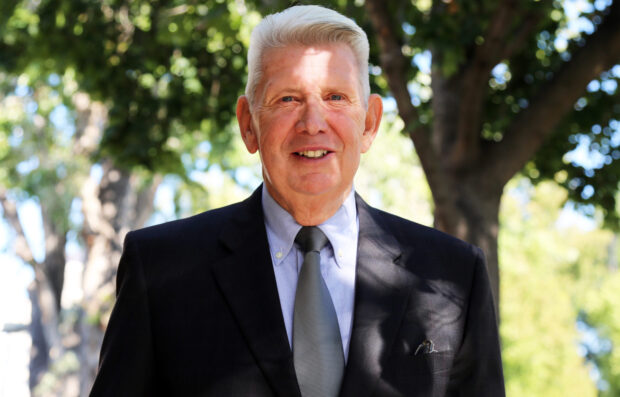It’s hard to make non-coronavirus news these days.
But you have to give Sherri Ybarra credit for trying.
The state superintendent’s lawsuit against the Legislature and the State Board of Education is serious scorched-earth stuff. Ybarra hopes the Idaho Supreme Court will consider her case by the end of May. Whether that happens or not, the hard feelings could linger well past the hearing date.
In case you missed all of this — which is understandable, in a COVID-19 world — here’s the quick recap.
In the final weeks of the 2020 session, the Legislature stripped away 18 full-time positions and $2.7 million from Ybarra’s State Department of Education, moving the staff and the money to the State Board of Education. Lawmakers who supported the move said they wanted to move all IT and data management under one roof, merging the SDE’s work on K-12 data functions with the State Board’s higher education operations. Ybarra said she was blindsided by the end-of-session maneuver.
Now to April.
First, Ybarra tried to convince her State Board colleagues to approve a “memorandum of understanding” that would have kept her IT and data management team intact. In essence, Ybarra asked the board to ignore the Legislature’s wishes and side with her. Not surprisingly, the board didn’t go there.
Ybarra retaliated Friday, filing a lawsuit.

The lawsuit boils down to jurisdiction. Ybarra’s attorney, David Leroy, says the Legislature and the State Board are trampling over her authority as a statewide constitutional officer. He contends the framers of the state Constitution saw the superintendent of public instruction as an elected administrator, and the board as an advisory body.
In a filing this week, Leroy says the coronavirus pandemic makes for an especially inopportune time for an SDE shakeup, as Ybarra “interacts with Idaho administrators, teachers and pupils in emergency shutdown conditions.”
But the lawsuit includes a healthy measure of political intrigue. Leroy alleges that the Legislature is trying to “eliminate” Ybarra’s constitutionally protected post. And the lawsuit offers a theory as to why: The 2020 Legislature is punishing Ybarra “in retaliation for her failure to support a 2019 revised school funding formula advocated by the speaker of the House and other legislators.”

Contacted by Idaho Education News Wednesday, House Speaker Scott Bedke didn’t say much about the political payback theory. But he said plenty.
“That’s nonsense,” said Bedke, R-Oakley.
Leroy, a former lieutenant governor and state attorney general, didn’t go into details about the claim. But he says individual legislators have told him the events are connected.
On Wednesday, Leroy said his case centers on the constitutional debate. The payback theory is an attempt to explain motive. “It may be that we’ll never have to get into that level of detail.”
But the lawsuit implies that the 2019 funding formula rewrite was a done deal, derailed only by Ybarra. That simply isn’t the case. True, Ybarra was lukewarm to the idea, urging the Senate Education Committee to slow down. But during that same committee hearing, several superintendents from large and small districts openly panned the proposal. Across the rotunda, members of the House Education Committee were so dead-set against a rewrite that they boycotted a meeting, preventing Chairman Lance Clow from even presenting his version of a bill.
In other words, Bedke and other supporters of the funding formula rewrite were running into ample resistance.
Ybarra’s political persecution narrative makes this lawsuit personal. And it pits the superintendent against people she has to work with — with legislators who review her budgets and her policy proposals, and with her colleagues on the State Board. At least for Thursday, Ybarra and the State Board stepped around each other; before the rest of board met in closed executive session to discuss legal strategy, Ybarra agreed to recuse herself.
But make no mistake. If bad blood hadn’t already been brewing in March, this lawsuit certainly could get the job done.
The lawsuit does give Gov. Brad Little a pass, kind of. He’s not listed as a defendant. But the lawsuit chides Little for signing off on the funding shift, and says Ybarra urged the governor to use his line-item veto authority to keep the SDE staff intact. Through a spokeswoman, Little declined comment.
When politicians sue politicians, one outcome is guaranteed. It’s going to cost the taxpayers some money. Leroy was hired as a special deputy attorney general for this case. Attorney General Lawrence Wasden’s office has released no details about the financial arrangements; Idaho Education News filed a public records request Tuesday.
So this could be some good publicly funded political theater. Something to sort of take our minds off of the coronavirus story, if that’s something we really need.
After all, here’s what Ybarra herself said during an April 20 State Board meeting — minutes before the board rejected her memorandum of understanding proposal, and four days before she announced she would be suing the board, among others. “The last thing that our state needs right now is another lawsuit.”
Let’s just leave this here, shall we?
Each week, Kevin Richert writes an analysis on education policy and education politics. Look for it every Thursday.
